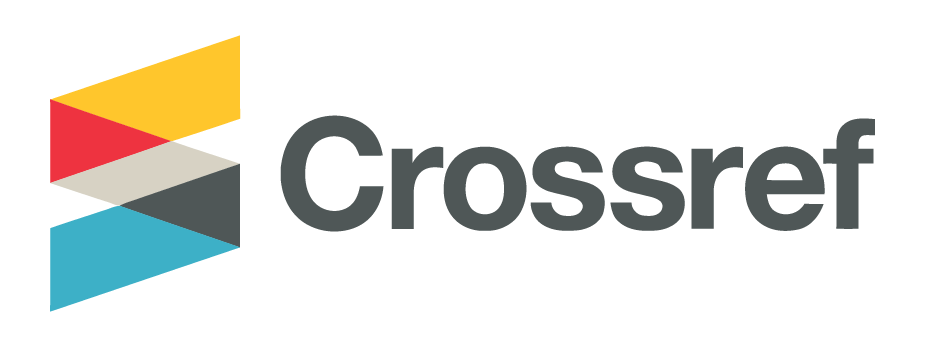Evaluating the Influence of AI on Market Values in Finance: Distinguishing Between Authentic Growth and Speculative Hype
DOI:
https://doi.org/10.63053/ijrel.11Keywords:
AI and Market Values, Speculative Bubbles vs. Authentic Growth, AI in Finance Operational Efficiencies and Innovation, Investment StrategiesAbstract
This article ventures into the intricate realm where the distinctions between authentic growth and speculative bubbles from impact of AI (Miller, 2003), celebrated and critiqued as a buzzword, emerges as a transformative element reshaping entire industries, workflows, and fundamentally altering market valuations (Perri, 2023). The promise of efficiency, innovation, and competitive superiority attributed to AI's integration into business models beckons a deeper investigation into its potential to redefine the competitive landscape. However, this promising horizon is not without its perils and scrutiny. A predominant debate as we navigate up to the year 2023 revolves around whether the market's enthusiastic reception of AI capabilities signifies a realistic reassessment of potential based on tangible fundamentals or if it's a manifestation of speculative exuberance, detached from any solid grounding (Baltrusaitis, 2023).
This exploration addresses some implications for investment strategies (GuoRong Hu*, Hui Liu , 2020), regulatory frameworks, and potentially influencing the direction of future technological advancements. It endeavors to dissect AI's multifaceted roles in contemporary business ecosystems, scrutinizing its impacts on corporate valuations and attempting to demarcate the fine line separating real growth from speculative froth. Through a detailed examination, this paper illuminates how AI technologies foster operational efficiencies, drive innovation, and unlock unprecedented insights, all the while carefully navigating the surrounding hype to assess overvaluation risks (Svetlova, 2022) and emerging pitfalls. The journey through the AI landscape reveals a spectrum of inspiring successes and cautionary tales, guiding the current nuanced discussion toward clarifying AI's impact on capital markets and corporate valuations understanding for investors, business leaders, and technology aficionados aiming to make informed decisions (Tania Babina , Anastassia Fedyk , Alex He, James Hodson, 2024).
References
Ahmadirad, Z. (2024). Banking and Investment in the Future: Unveiling Opportunities and Research Necessities for Long-Term Growth. International Journal of Applied Research in Management, Economics and Accounting (IJMEA), 8.
Alireza Askarzadeh, Kenneth Yung, Mohammad Najand. (2023). Managerial sentiment and predicted and opportunistic special items. Journal of Corporate Accounting & Finance, 16.
Allen, H. (2022). Driverless Finance: Fintech's Impact on Financial Stability. uk: Oxford University Press.
Amin Abbasi-Pooya, Ali Husseinzadeh Kashan. (2017). New mathematical models and a hybrid grouping evolution strategy algorithm for optimal helicopter routing and crew pickup and delivery. Computers & Industrial Engineering, 14.
Baltrusaitis, J. (2023, 11 09). Finbold. Retrieved from Finbold: https://finbold.com/leading-ai-companies-market-cap-2023/
Dr.Vidhya V, Dr Somasekhar Donthu, Lavanya Veeran, Dr Y P Sai Lakshmi , Dr.BabitaYadav. (2023). THE INTERSECTION OF AI AND CONSUMER BEHAVIOR: PREDICTIVE MODELS IN MODERN MARKETING. Remittances Review, 14.
Finance, P. A. (2020). Predictive Analytics in Finance. The Journal of Finance and Data Science, 17.
Gerald Matthews, Peter A. Hancock , Jinchao Lin , April Rose Panganiban, Lauren E. Reinerman-Jones , James L. Szalma , Ryan W. Wohleber. (2021). Evolution and revolution: Personality research for the coming world of robots, artificial intelligence, and autonomous systems. Personality and Individual Differences, 169.
GuoRong Hu*, Hui Liu . (2020). Development Strategy of Securities Investment Industry under the Background of Artificial Intelligence. Journal of Physics: Conference Series, 8.
Hamza, F. (2022). Short and/or long-term investment choice: Artificial intelligence analysis of the role of both organizational and behavioral determinants . International Journal of Data and Network Science , 10.
Hilpisch, Y. (2020). Artificial Intelligence in Finance. Boston: O'Reilly Media.
Iain M. Cockburn, Rebecca Henderson, and Scott Stern. (2018). The impact of artificial intelligence on innovation: An exploratory analysis. National Bureau of Economic Research, 33.
Lee, J. (2020). Access to Finance for Artificial Intelligence Regulation in the Financial Services Industry. European Business Organization Law Review, 27.
Lin, T. C. (2019). ARTIFICIAL INTELLIGENCE, FINANCE, AND. HeinOnline, 23.
LONGBINGCAO. (2022). AI in Finance: Challenges, Techniques, and Opportunities. ACM Journals, 38.
Matin Ghasempour Anaraki , Ali Moradi Afrapoli. (2023). Sustainable open pit fleet management system: integrating economic and environmental objectives into truck allocation. Mining Technology, 12.
Miller, R. M. (2003). Don't Let Your Robots Grow Up to Be Traders: Artificial Intelligence, Human Intelligence, and Asset-Market Bubbles. Journal of Economic Behavior and Organization, Forthcoming, 33.
Pedersen, M. (2016). Artificial Intelligence for Long-Term Investing. SSRN , 2016.
Perri, L. (2023, 08 17). Gartner. Retrieved from Gartner: https://www.gartner.com/en/articles/what-s-new-in-artificial-intelligence-from-the-2023-gartner-hype-cycle
Svetlova, E. (2022). AI ethics and systemic risks in fnance. AI and Ethics, https://link.springer.com/article/10.1007/s43681-021-00129-1.
Tania Babina , Anastassia Fedyk , Alex He, James Hodson. (2024). Artificial intelligence, firm growth, and product innovation. Journal of Financial Economics, 26.
Taqwa Hariguna , Athapol Ruangkanjanases . (2024). Assessing the impact of artificial intelligence on customer performance: A quantitative study using partial least squares methodology. Data Science and Management, 29.
Vijayakumar, H. (2021). The Impact of AI-Innovations and Private AI-Investment on U.S. Economic Growth: An Empirical Analysis. Reviews of Contemporary Business Analytics, 19.
Downloads
Published
How to Cite
Issue
Section
License
Copyright (c) 2024 International Journal of Advanced Research in Humanities and Law

This work is licensed under a Creative Commons Attribution 4.0 International License.













